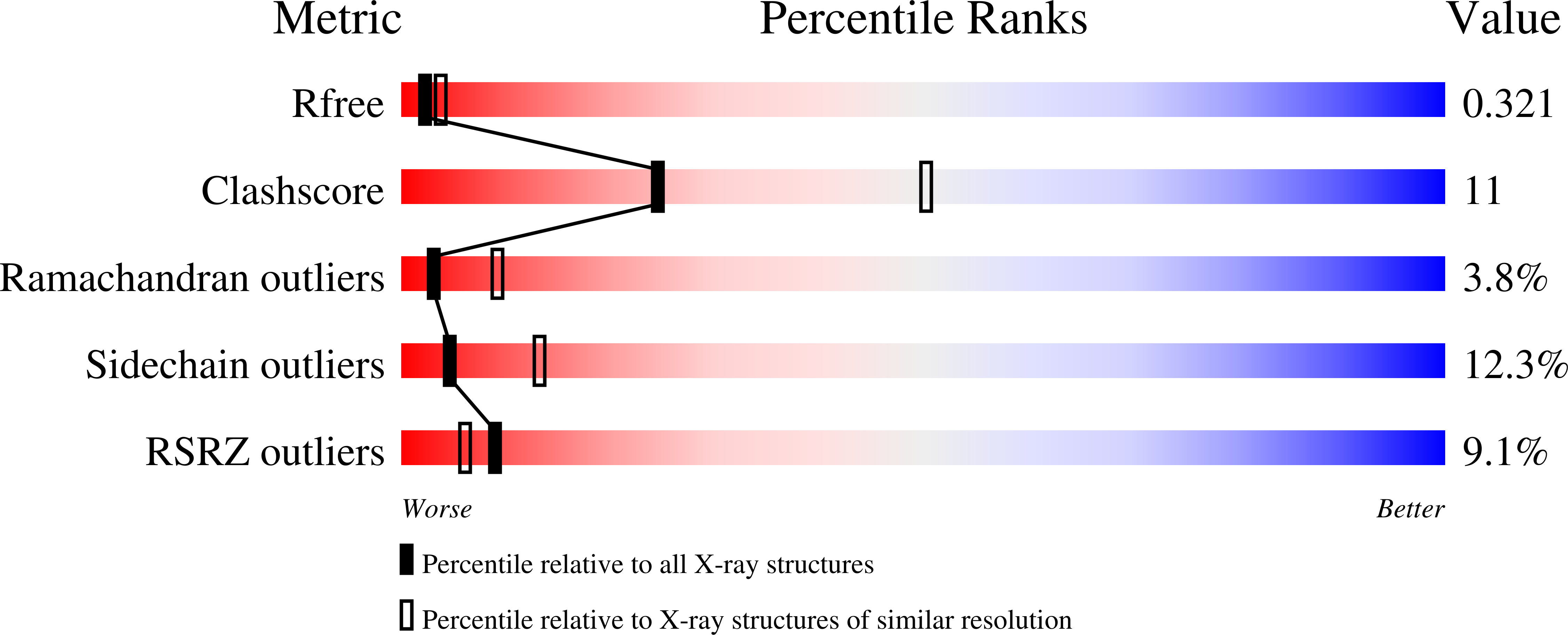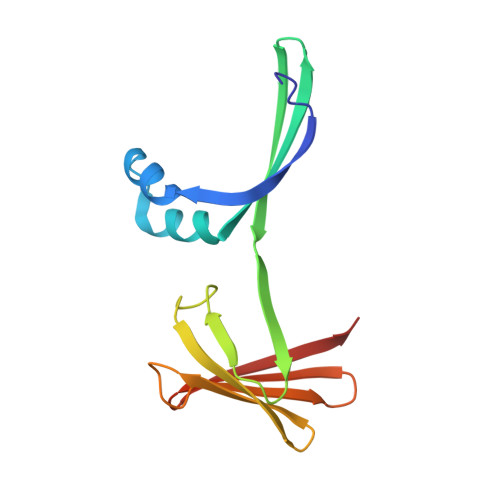Human Cellular Retinol Binding Protein II Forms a Domain-Swapped Trimer Representing a Novel Fold and a New Template for Protein Engineering.
Ghanbarpour, A., Santos, E.M., Pinger, C., Assar, Z., Hossaini Nasr, S., Vasileiou, C., Spence, D., Borhan, B., Geiger, J.H.(2020) Chembiochem 21: 3192-3196
- PubMed: 32608180
- DOI: https://doi.org/10.1002/cbic.202000405
- Primary Citation of Related Structures:
6VIS, 6VIT, 6WNF, 6WNJ, 6WP0, 6WP1, 6WP2 - PubMed Abstract:
Domain-swapping is a mechanism for evolving new protein structure from extant scaffolds, and has been an efficient protein-engineering strategy for tailoring functional diversity. However, domain swapping can only be exploited if it can be controlled, especially in cases where various folds can coexist. Herein, we describe the structure of a domain-swapped trimer of the iLBP family member hCRBPII, and suggest a mechanism for domain-swapped trimerization. It is further shown that domain-swapped trimerization can be favored by strategic installation of a disulfide bond, thus demonstrating a strategy for fold control. We further show the domain-swapped trimer to be a useful protein design template by installing a high-affinity metal binding site through the introduction of a single mutation, taking advantage of its threefold symmetry. Together, these studies show how nature can promote oligomerization, stabilize a specific oligomer, and generate new function with minimal changes to the protein sequence.
Organizational Affiliation:
Department of Chemistry, Michigan State University, 578 S. Shaw Lane, East Lansing, MI 48824, USA.
















